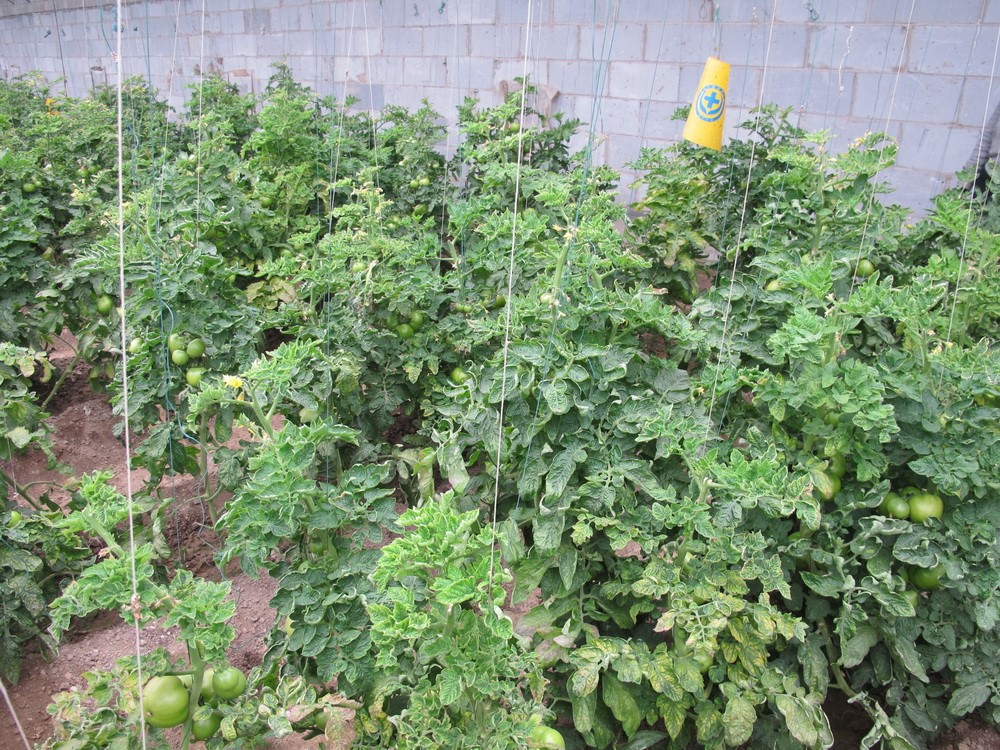Climate change is driving disease rapidly spread, esp. for global distribution of insect-borne diseases. Arthropod-transmitted viruses, known as arboviruses, can cause pandemic diseases in humans, animals, and crops. Environments such as light condition influence the spread of infectious diseases by affecting insect vector behavior. Whether and how climate condition such as light affects disease spread has not been characterized.
In a study published online in PLoS Pathogens, a group of scientists led by Prof. YE Jian from the Institute of Microbiology of the Chinese Academy of Sciences discovered that virus adapts host plant defense systems regulated by light. They uncovered the mechanism used by begomoviruses geminiviruses (the largest genus of plant virus and the earliest recorded plant virus disease over a millennium ago in the world) to alter a host plant’s immune system. This discovery may facilitate the development of green and sustainable methods to control vector-borne diseases, for example, specific wave length LED lights treatment.
Unlike animal viruses, the transmission of plant viruses depends more on insect vectors due to the lack of host mobility. Among 1,400 plant viruses worldwide, nearly 80% are transmitted by insect vectors. Currently, controlling viral plant diseases relies almost completely on chemical pesticides, creating enormous ecological and environmental costs.
"Previous studies on arbovirus diseases often focused on the interactions of viruses and plant hosts, or viruses and host insects, thus failing to generate effective measures for controlling viral diseases. Our findings identify better control methods for arbovirus diseases,” said Prof. YE.
Prof. YE’s team focused on the geminivirus and bunyavirus – two types of arbovirus that cause many notorious crops diseases in developing countries. Relevant studies were published in Science advances, Nature Communications, The Plant Cell and PLOS Pathogens, respectively.
In this study, the scientists found that plants have evolved a dual fail-safe switch to counter whitefly-transmission of geminivirus. That safe switch could integrate external environment and internal signaling to defense. Geminivirus infection turn-off this switch to dramatically reduce the light-controlled plant metabolites terpenes, which function as repellent for whitefly. They identified a helix-rich domain of geminiviral protein βC1 serves as an inhibitor of PHYTOCHROME-INTERACTING FACTORS (PIFs) transcription factors which are also positive promoters of biosynthesis of terpene repellent for whitefly.
"Red light secures plant host immunity against begomovirus. Begomovirus, the largest genus of plant viruses and transmitted exclusively by whitefly. However it always run the red light by counterdenfensing host immunity” said Prof. YE. “However we could apply Far-Red Radiation LED lights technology which inactive the viral protein βC1”.
This work presents a novel scenario of how a pathogen adapts environmental conditions for vector attraction and pathogen spread. The results will also help to address similar tripartite interaction systems in plants, animals and humans and will allow innovative control methods through interference with vector transmission.
Link: https://journals.plos.org/plospathogens/article?id=10.1371/journal.ppat.1008770

A typical tomato viral disease caused by geminivirus in Beijing, China
Contact:
Dr. Jian Ye
E-mail: jianye@im.ac.cn
Department of Agricultural Microbiology and Biotechnology, Institute of Microbiology, Chinese Academy of Sciences, 100101, Beijing, China
